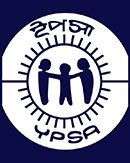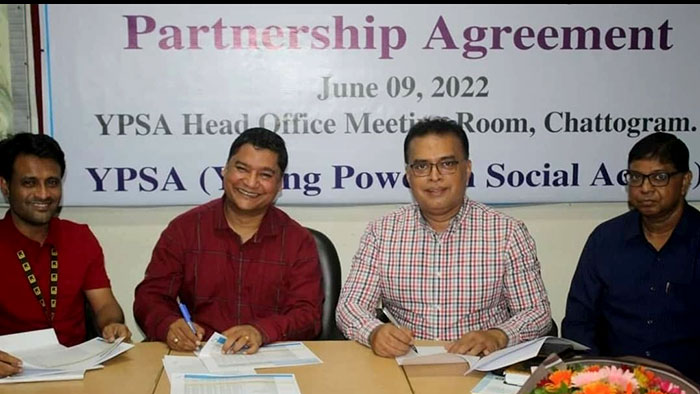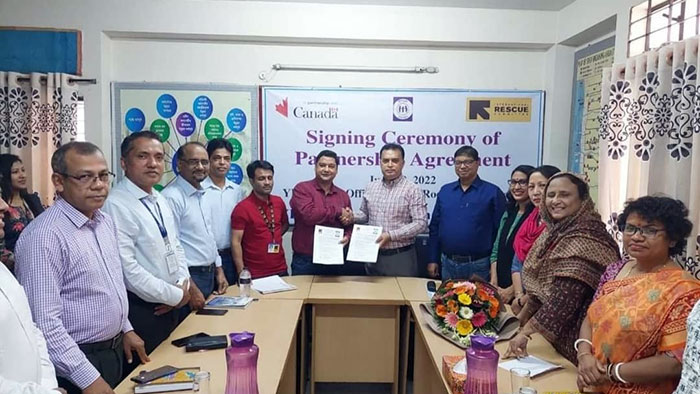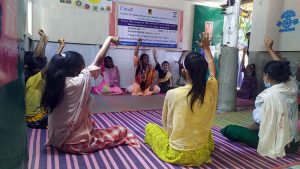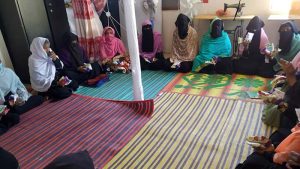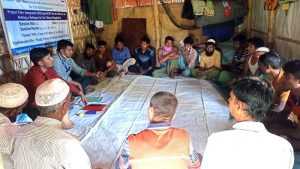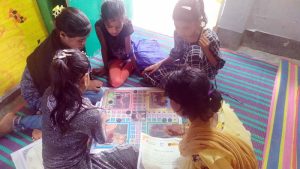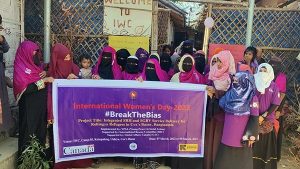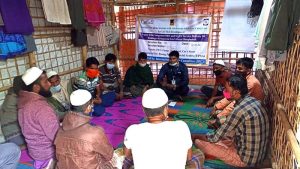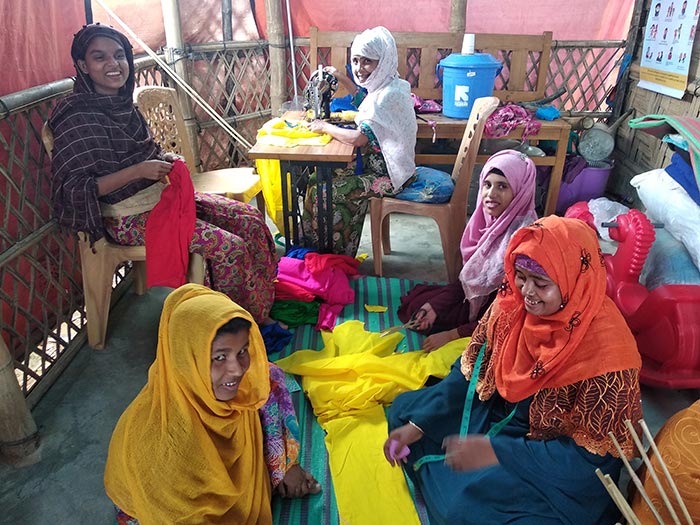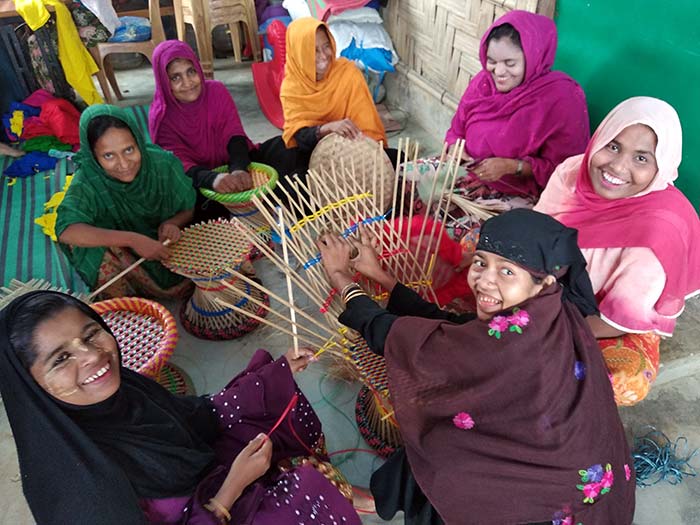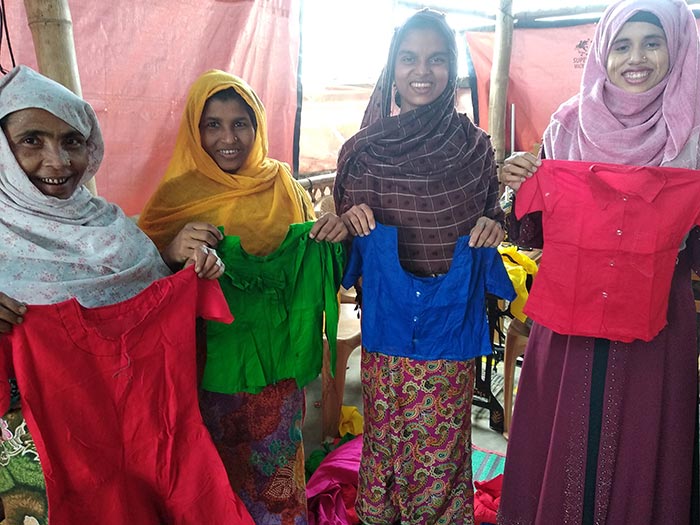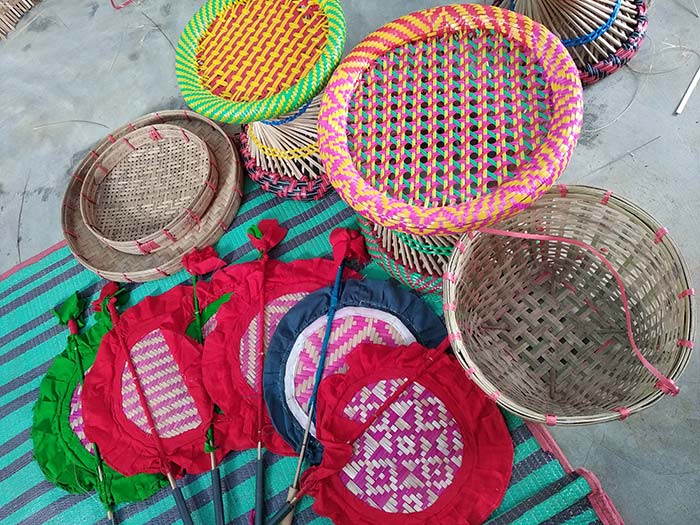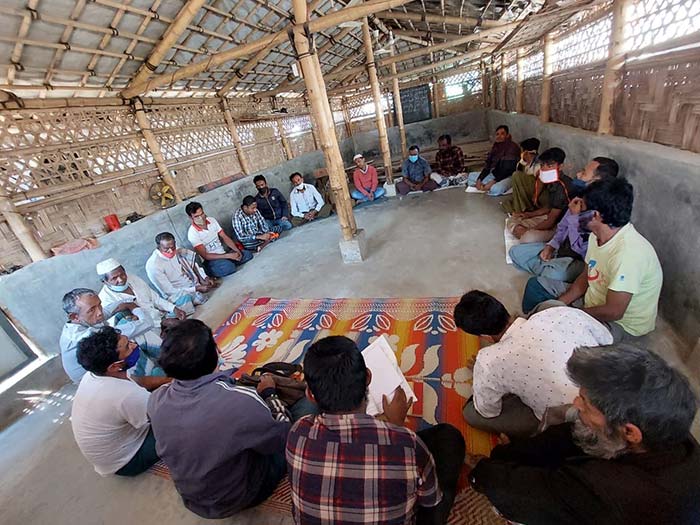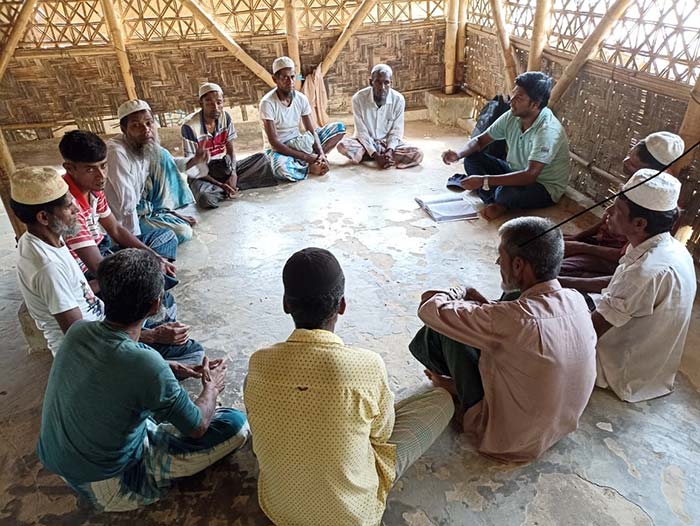Project Title: Integrated Protection and Health Program for Rohingya Refugees and Host Community in Cox’s Bazar
Funding Partner: Global Affairs Canada (GAC)
Technical Supporting Partner: International Rescue Committee (IRC)
Implementing Partner (IP): YPSA (Young Power in Social Action)
Duration of the Project: July 2021 to May 2023
Working Areas: Rohingya Camp: Camp #5 & Camp #18 under Ukhiya Upazila and Camp # 25 under Teknaf Upazila, Cox’s Bazar
Targeted Beneficiaries:49,144 Beneficiaries (Female- 32,718 Male- 16,426 PWD:281)
Project Objectives:
- To ensure Rohingya women and girls are safe in their homes and communities through integrated Sexual and Reproductive Health (SRH) and Protection Services.
- GBV risks are reduced through enhanced community engagement.
- Women’s income-generating skills are developed and dialogues with spouses are conducted to improve household decision-making power.
- Specialized life skills activities are conducted to improve adolescent access to SRH and SGBV prevention and response services
- Children equipped with life skills and coping strategies through completion of the SAFE curriculum
- Women and girls are aware and seek SGBV services based on their individual needs in a timely manner
- Community mobilization and outreach activities are conducted using local activism approaches
Major Activities of the Project:
Briefs on Activities of the Project:
- Women Visits in Integrated Women’s Centres (IWCs): The Integrated Women’s Centers (IWC) already exist in three Rohingya camps in Cox’s Bazar, and YPSA is working to implement program activities through them. These IWCs also serve as a resource for information on the response and services offered by IRC as well as other referral channels for receiving services for protection, health & reproductive health, legal support, etc. Additionally, it is regarded as a recreational facility for them where Rohingya women and girls can participate in a variety of recreational activities including drawing, indoor games, skipping, applying henna and makeup, sewing, physical activity, book reading, (appropriate books for them), etc.
- Girl Shine Approach for Adolescents and Caregivers: The Girl Shine Approach is a life skills-based component for adolescents and their caregivers, with the facilitator conducting sessions on the themes of trust, social and emotional skills, health and hygiene, safety, solidarity, and visioning. The 16 Life Skills sessions that comprise the Girl Shine component’s important session topics include the introduction of Girl Shine, friendship, communicating our choices and being confident, decision-making, staying healthy, I am changing, our bodies and our monthly cycles, My safety Map, comfortable and uncomfortable touch, healthy relationships, when girls are Hurt, and building girls solidarity. Under the Girls Shine component, there were a total of 16 life skills sessions for adolescent girls and a total of 14 life skills sessions for caregivers.
- Economic and Social Empowerment (EA$E): Women’s income-generating skills are developed and dialogues with spouses are conducted to improve household decision-making power. In order to secure the social and economic empowerment of Rohingya women, a demand-driven survey led to livelihood training in specific trades. In order to support women, develop their abilities, trade-specific expert trainers provide livelihood training. The project also provides support for their business, market analysis, and market linkages for continuing their economic activity.
- SASA Together (Community Mobilization and outreach activities are conducted using the local activism approach): Sparking community-wide change by transforming imbalances of power is the heart of SASA! Together. It is led by women and men who live and work in the community and are supported throughout this journey by dedicated SASA! Together staff. “SASA!” means “NOW!” in Kiswahili, emphasizing the urgent need to prevent violence against women. SASA! is also an acronym for its four phases: Start, Awareness, Support, and Action. “Together” emphasizes that change is possible with collaboration, support, and solidarity. SASA together to meet the demands of community awareness for SGBV prevention through community-led activism, as well as dialogue sessions with community leaders.
- Support for Adolescent and their Families in Emergencies (SAFE): The new phase includes SAFE and Positive Parenting sessions for the Child Protection component. Adolescent boys and girls take part in the SAFE sessions’ child protection section, while male and female caregivers take part in the Positive Parenting session. The major topics of SAFE and positive parenting sessions include: Welcome to Safe, Safety and support, Staying Healthy, What Makes a Boy or Girl, Our Emotion and Managing Our Emotions, Coping with Stress, Our relationship and choices, Our Changing Body, Puberty, and Our Safety. Positive parenting session for caregivers of Adolescent Boys and Girls who enrolled in the SAFE session under the Child Protection component.
- Outreach activities: Community People reach out through outreach activities where GBV Core Concept & Referral Pathway are discussed. In addition, the topics of discussion during SASA and other outreach activities included the GBV core concept, different GBV power exercises, stopping trafficking, and disaster risk management.
Achievements of the Project:
Total Beneficiaries Reached: YPSA began working on this project in July 2021, and the first phase was finished in May 2022. Contrary to the target of 5,730, a total of 21,790 beneficiaries have been reached in this phase, including 14,916 women and 6,874 men. Through the implementation of the IRC-approved strategies, these beneficiaries are also informing others about SRH awareness and the response to gender-based violence. However, the Child Protection Component is a new one that is integrated with other components during this project phase. A total of 49,144 beneficiaries were reached over the period of two stages thanks to the planned strategies that were put into place at the IWCs facilities for women and girls as well as at community home facilities for the male and boy session.
Inception Meeting with Camp Administration: Project inception meetings must be held for each and every project after receiving official approval from the government, such as NGOAB and RRRC, in order to share the project implementation plan in accordance with the need assessment and to exchange views with the administrative officer in charge of the Camp and other NGOs. The YPSA team convened six Project Inception Meetings in three different camps over the course of two stages. These meetings included both the planned program and the directives from the CIC and office.
Girl Shines Component: Girl Shine is one of the key components for teenage girls and their parents 720 adolescents and 720 caregivers have been enrolled in the 3 separate camps in the new phase through a home survey. Utilizing the CommCare program, a baseline survey was done after enrollment. The 16 Life Skills under the Girl Shine component’s important session topics include the introduction of Girl Shine, friendship, communicating our choices and being confident, decision-making, staying healthy, I’m changing, our bodies and our monthly cycles, My safety Map, Comfortable and Uncomfortable Touch, Healthy Relationship, When Girls Are Hurts, and Building Girls Solidarity. More than 75% of the 720 adolescent participants who signed up for the Girl Shine component’s three camps completed them.
Community Outreach Activities: The key role of the Rohingya volunteers is to reach community people for developing awareness of GBV-related issues and for prevention of harassment and exploitation etc through community outreach activity. So, as part of these activities, a total of 19,714 beneficiaries were reached in the three different camp working areas during this period. Through the outreach activities, outreach sessions on GBV prevention (at the facility, community, and household levels) and individual communication and interaction were done. The specific discussion points discussed during the outreach activities included Core Concept and related Risk Mitigation Measures, Information about suicide prevention messaging, PSEA, PSS, and referral pathways, SRH/Family Planning messaging, Messages Regarding Protection Related Concerns (CP/ protection), Suggestions on how to prevent COVID 19, details on preventing seasonal sickness and observed Violence Against Women Day (November 25).and International Women’s Day (8 March), etc.
Staff Capacity Building Training: The Girl Shine Approach, GBV’s central idea, SASA-Together, EA$E approach, SAFE & Positive Parenting were all covered in staff training for volunteers and project staff by IRC, in which a total of 14 project staff took part. After receiving the training they conducted a session on the different components of the project.
Capacity building of Volunteers: A total of 59 Volunteers were also trained on the program component, and six women’s and girls’ groups were trained on women’s leadership. Following the training, the volunteer team aware the community’s residents of the availability of GBV services and taught women’s organizations to promote their leadership skills.
EA$E Component: In total, 58 (out of 60) women completed the entire training program in four different trades for their social and economic under the component EASE, with two participants dropping out. YPSA conducted a market analysis, worked with regional suppliers, and collaborated with IOM, BRAC, and CiCs, among other.
SAFE and Positive Parenting Session: A total of 120 adolescent girls and 60 adolescent boys participated in the child protection component of the SAFE sessions, while a total of 120 female caregivers and 60 male caregivers participated in the Positive Parenting session. Sessions with boys and men caregivers were held in the community households total of 11 SAFE sessions out of 16 sessions for adolescent girls and boys and 05 sessions out of 8 sessions for caregivers have already taken place under this component, and the project team also made sure that every target participant was present in the SAFE and Positive Parenting session. The main objective of the component is to train participants on how to protect themselves against abuse, neglect, violence, and exploitation
SASA Together: SASA Together is another important component for the prevention of GBV through community engagement. Under this component, community leaders and activists have been selected and planned to train to play an active role in organizing community dialogue sessions for the prevention of gender-based violence. In addition, a total of 2,090 community people including 1,387 women and 703 men have been reached out to through community outreach activities. The main topics of discussion during SASA outreach activities included the GBV core concept, different GBV power exercises, stopping trafficking, and disaster risk management.
Day Celebration on International Women’s Day: The event was scheduled to take place on March 8, 2022, International Women’s Day. The community was made aware of gender-based violence and women’s rights through this event. Ensured that 1,012 girls and women attended the International Women’s Day events. In addition, women learn about their rights and violence in intimate relationships
